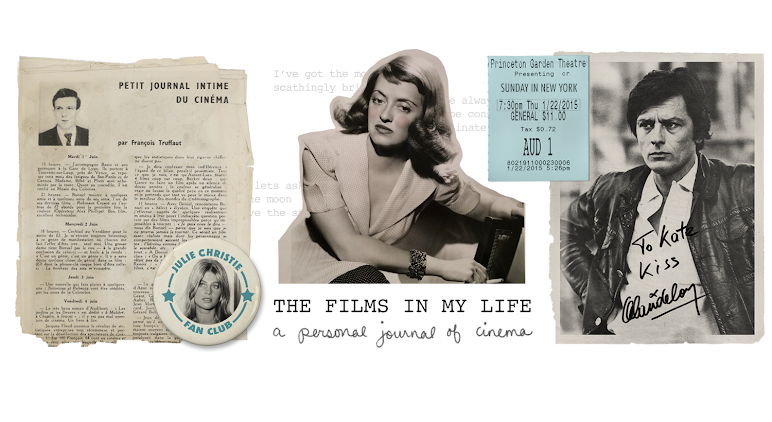
I'm participating in Raquel's Summer Reading Classic Film Book Challenge and for my second book I read the BFI Film Classics book on L'Avventura, written by Geoffrey Nowell-Smith.
When I signed up for the summer reading challenge I started browsing on Amazon, and I stumbled upon the BFI Film Classics series. They have dozens and dozens of books each dedicated to a single movie. In this book the author tackles the public reception to the film, the production background, the meaning, the casting, and the legacy. If all of the BFI books are this comprehensive and riveting then I'm definitely going to be purchasing more of them in the future!
If you've seen L'Avventura, then you'll probably agree that reading an in-depth analysis will help with your understanding of the film. That's not to say that it's too complicated or too confusing to wrap your brain around without any assistance. It's an enjoyable movie on its own, but additional insight can only strengthen your grasp on the deep meaning lurking under the simple surface. The author does a wonderful job of explaining how this movie came to be and what exactly Antonioni was trying to tell us in the story. I particularly loved his observation about Antonioni's work in general, that he isn't a realist or a moralist. "His films are reflections on, rather than of, the world. It is this which makes him.. an essentially modern artist." In L'Avventura there is a rawness that isn't present in a lot of films that predate it, but at the same time it has an otherworldly quality that plucks it from reality. It doesn't straddle the line between gritty realism and cinematic confections, it hovers above them in some nether world of its own.
One thing that I felt was lacking in the book was any real effort to tackle the symbolism, something that I personally tend to overlook unless I already know what I'm looking for. And even then, I might know it's there, but I don't always know what it means. I also would have loved some discussion about the dialogue, which is one of my favorite things about the movie. Words are few and far between but when they're spoken they are always poignant and riddled with multiple meanings. "I have never understood the islands. With all that water around them, poor things ..." Don't you wish people spoke like that in real life? I do.
One word of warning if you're planning on reading the book - make sure you've seen La Notte and L'Eclisse beforehand. The author makes a ton of comparisons and they'll fly right over your head if you've never seen the other films. He also makes mention of Red Desert, Blow-Up, and Zabriskie Point, but only in passing.
Overall I really enjoyed the book and I feel like it helped strengthen my understanding of the movie and the climate in which it was created. I'm looking forward to reading more BFI Classics. They're almost like 100 page classic film blog posts in book form!

Finally, this isn't really related to the book so much as the movie, but I had to share it. The scene in which Monica Vitti is waiting outside and men start slowly swarming around her reminds me so much of The Birds. I was hoping that the author might address L'Avventura's effect on other filmmakers (did Hitchcock see this movie? I feel like this HAD to be an inspiration for The Birds) but he didn't, which left me googling "L'Avventura The Birds" as soon as I had finished, hoping someone else might have pieced something together. And lo and behold, I found this video. It's chilling, isn't it?






















